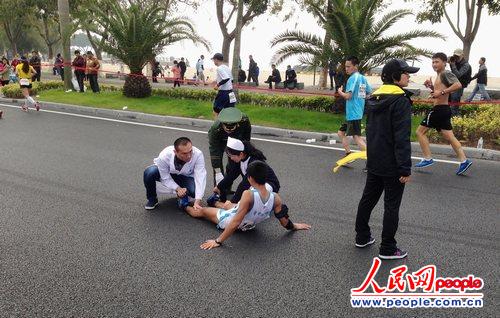A commission will be established to deliberate important policies on cyber security and organize reviews, according to a document released by the Cyberspace Administration of China (CAC) on Tuesday.
The document, on the security of Internet products and services, has just been released for public opinion. The CAC will establish the commission with other authorities.
The document proposed that Internet products and services related to national security and the public interests should undergo a security review.
According to the CAC, reviews will focus on whether the products or services are secure and sufficiently managed, and on assessing risks of illegal control, disruption or interruption.
The reviews will also evaluate risks of providers using their products or services to illegally gather, store, process or make use of user information.
In addition, unfair competition, monopolization or any other functions that may damage users’ interests will be reviewed, according to the CAC.
Any service or product that fails the review will be blacklisted, making them off limits to all Communist Party of China (CPC) organs, government departments, and key industries.
HIGHLIGHTING PRODUCTS AND SERVICES
The review is neither a legal practice nor an administrative one, said an official with the CAC, but is merely supervision of important Internet products and services.
The review will not hinder foreign products from entering the Chinese market, but will only to boost confidence in such products and services, the official said. Authorities will treat Internet products and services from home and abroad equally.
Zuo Xiaodong, vice president of the China Information Security Research Institute, a government think tank, said the regulation means that while products and services that fail the review will be blacklisted, it does not mean that all Internet products and services purchased by CPC organs, government departments and key industries will be reviewed.
LAW-BASED INTERNET REGULATION
China has introduced a number of Internet laws and regulations and is home to about 700 million Internet users, the world’s largest online population.
In December, the CAC released a cyberspace security strategy, guaranteeing cyberspace sovereignty and national security, protecting information infrastructure and promising action against cyber terror and crime.
In November, a cyber security law stipulated that the government would take measures to “monitor, defend and handle cyber security risks and threats originating from within the country or overseas sources, protecting key information infrastructure from attack,intrusion, disturbance and damage.”
In July 2015, China’s top legislature adopted a new national security law highlighting cyber security and demanding the establishment of a coordinated, efficient crisis management system.
The law covers a wide spectrum of areas including defense, finance, science and technology, culture and religion.
